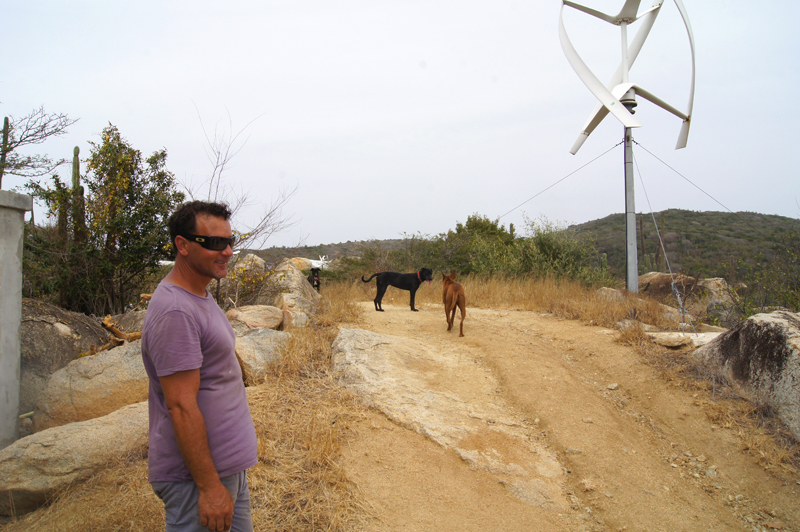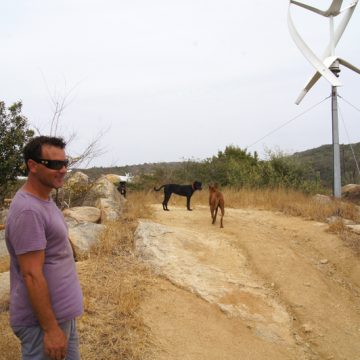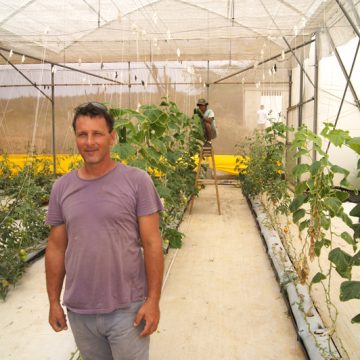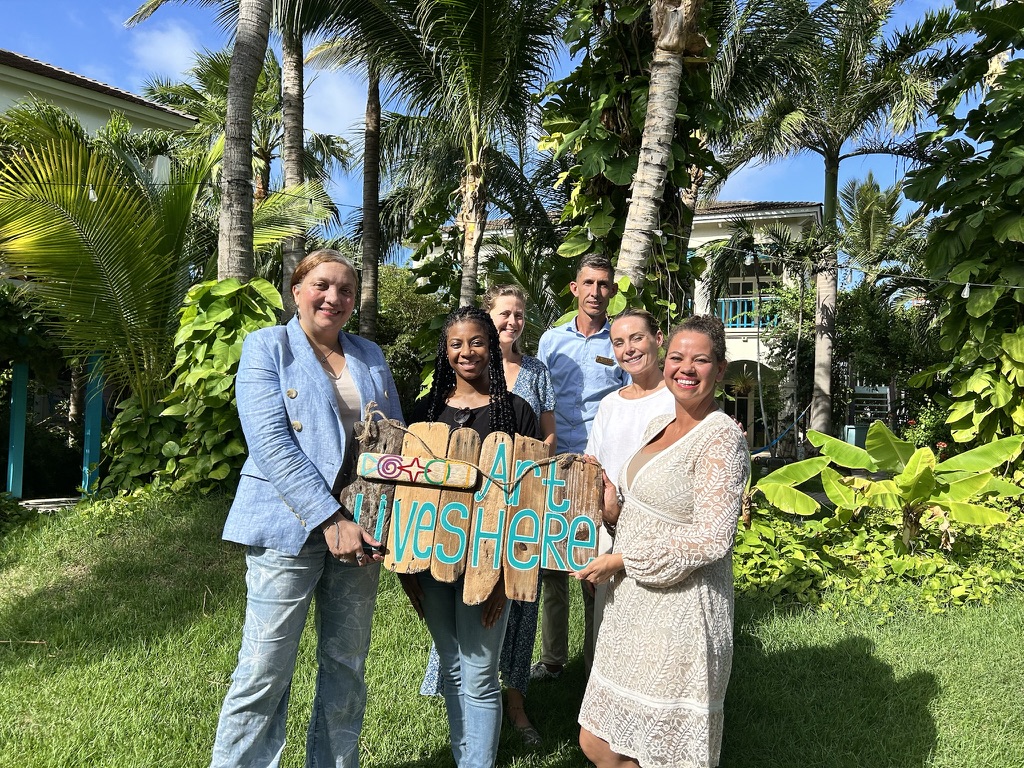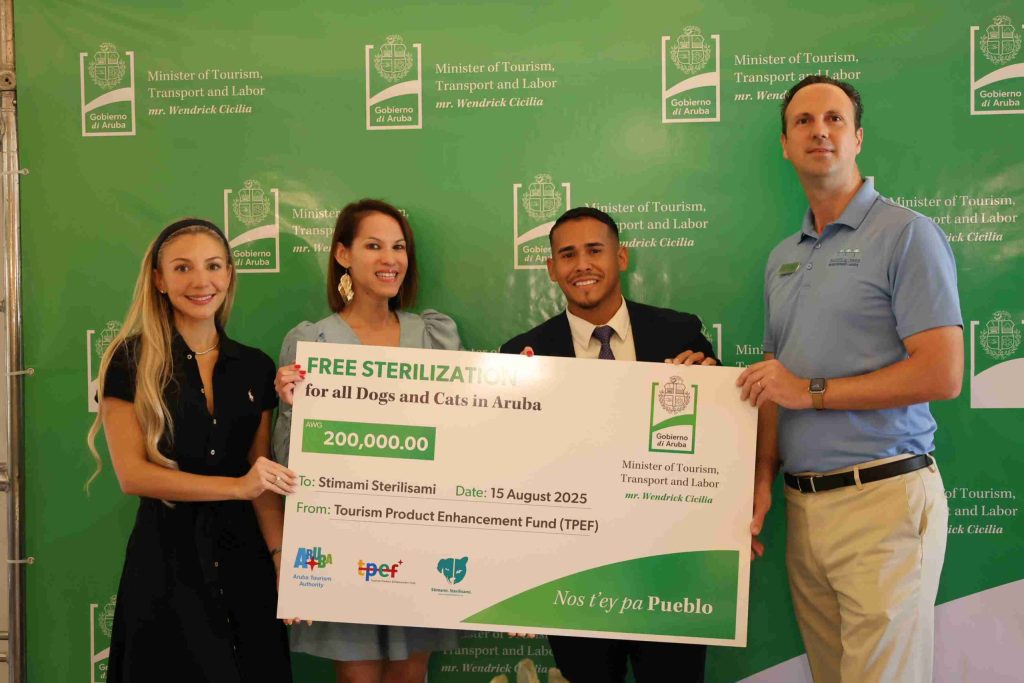Article and pictures courtesy of Linda Reijnders and Amigoe
Santa Rosa’s director, Nathalie Maduro, calls Ari Lichtenstein a pioneer for farming on Aruba. It may not seem logical to grow vegetables on Aruba where the climate and circumstances are not favorable for farming. Nevertheless Ari started working towards achieving his dream three years ago. “I love healthy food and I always had an interest in plants. I always believed that you could cultivate vegetables here, and in Aruba whenever you have a good idea you just need to do it yourself, otherwise you might end up waiting for a long time.”
Ari’s search for greenhouses brought him to Israel where according to him you could buy the best greenhouses. “Besides that, their climactic conditions are very similar to Aruba.”
A greenhouse consultant taught Ari much about the tricks of the profession, but he also learned a lot from books and information on the Internet. “Above all I learned from doing it – through trial and error – because sometimes it is difficult. Ari has eight employees and the costs of water are high. But also vermin that damages his crops are a frequent challenge. By setting high standards he tries to assure the best possible taste for his products. “For example the tomato plants are grown close to the ground so they retain the most vitamins.”
Ecological and Natural
Ari’s farm, located close to the entrance of National Park Arikok, covers 50.000 square meters. He has twelve greenhouses; currently three of them are used for tomatoes and cucumbers and six smaller greenhouses are reserved for growing lettuce.
Every Monday and Thursday The Land Farm delivers to Island Fresh, a distributor that delivers products to supermarkets (Ling & Sons and Superfood) and many resorts. “My vegetables are the same price or even cheaper than imported vegetables” mentions Lichtenstein.
The Landfarm uses several windmills to convert wind into energy and rainwater gets captured and re-used. “Water supply for the vegetables is often difficult due to drought and I often need to buy more water from Santa Rosa” mentions Lichtenstein. “I also can’t capture all energy with the windmills, but it is my intention to work as environmentally-friendly as possible. My vegetables are 100 percent natural and not sprayed.”
Lichtenstein shows his estate and tells about his ambitions: “You can see that there are still many things that need to be done. The greenhouses are in place and are producing, but I would also like to clean and landscape the site so it can be visited by schools and tourists in the future.” Ari would also like to open a little shop on the site where he could sell his products. His dream is that people will specifically look for his products and consciously choose for healthy and natural crops.
From the greenhouse directly on your plate
According to Lichtenstein, what distinguishes his vegetables from imported vegetables in the first place is the taste. He claims his vegetables are much more pure and better. Furthermore you will be able to feel the difference. “My tomatoes are harder and they really smell like tomatoes. My vegetables go directly from the greenhouse to the store and can be on your plate the same day. Imported tomatoes or cucumbers are always on the road for some days before they can be delivered to the store.” With vegetables from Venezuela you never know what the vegetables are sprayed with or what water was used to grow them. Also vegetables from the United States are usually shipped when they are still unripe and after a week they are either too green or too ripe. “At any rate may vitamins are lost as a result of the transportation, which is one of the reasons why many people are deficient in vitamin B12. Incidentally, cucumbers are a good source of B vitamins.” Ari concludes that one’s health will improve when eating fresh vegetables.

